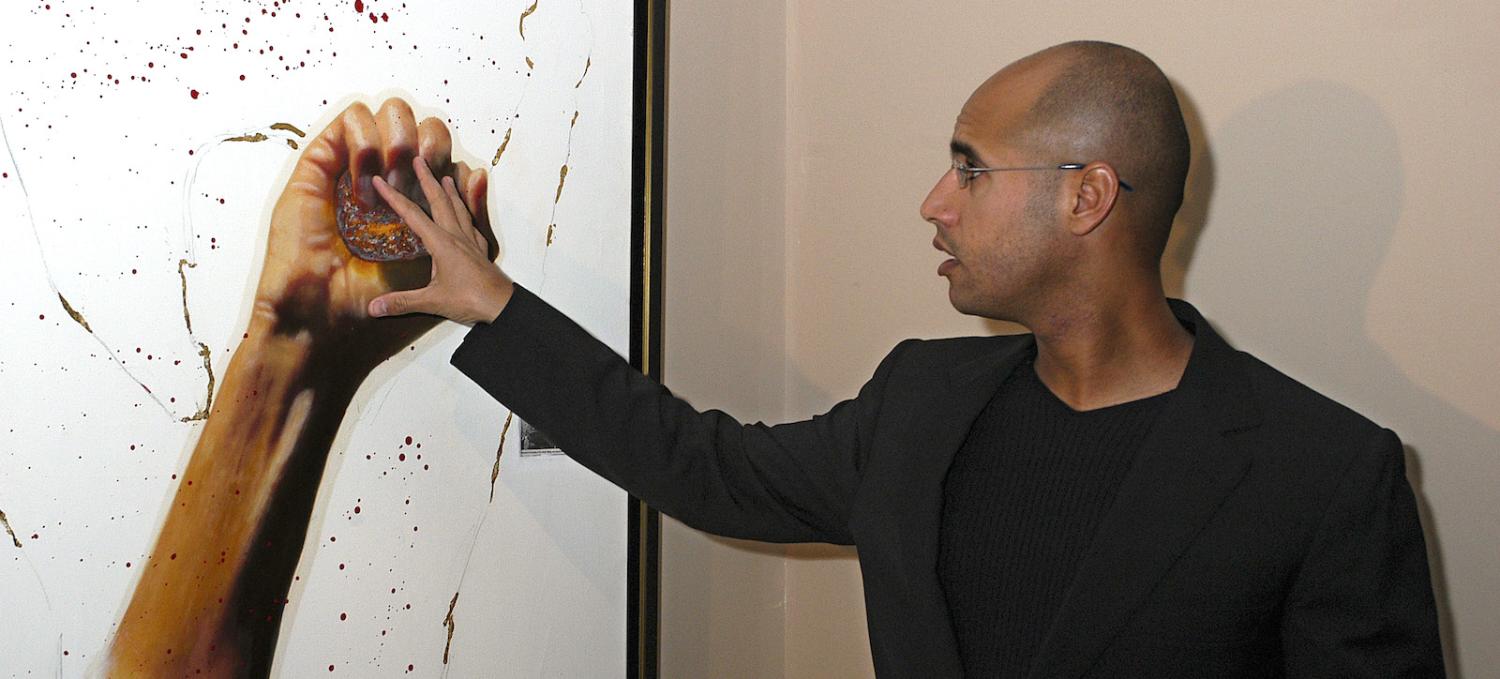In March, officials of the Popular Front for the Liberation of Libya announced that Saif al-Islam Gaddafi, the son of the former Libyan leader Muammar Gaddafi, would stand as a candidate for the Libyan presidential elections expected in December. The news was greeted with caution and even scepticism. Since his release from a militia-controlled prison in Zintan in June last year, Saif Gaddafi has not been seen in public and his whereabouts remain unknown.
Analysts have speculated as to what chance Saif Gaddafi would stand in a presidential contest. First, a number of legal hurdles to his candidacy will need to be cleared, in particular a warrant for his arrest issued by the International Criminal Court, and a death sentence issued in absentia by a court in Tripoli in 2015.
A number of legal hurdles to a Saif Gaddafi candidacy will need to be cleared, in particular a warrant for his arrest issued by the International Criminal Court, and a death sentence issued in absentia by a court in Tripoli.
Libya’s draft constitution, scheduled to be adopted by September under the UN’s latest transitional plan, bars citizens with a criminal record or court indictment from running as a candidate. At the same time, key decision-makers such as UN special representative Ghassan Salamé have stated that any election law that is eventually adopted should be “open for all”, including Saif Gaddafi.
If accepted as a candidate by Libya’s electoral commission, Saif Gaddafi will be able to count on the support of a number of Libyan tribes, especially in the south, in the Warshefana region and around Sirte, Muammar Gaddafi’s birthplace. Libya’s current electoral system, adopted in 2014, normally favours the eastern and southern regions of Libya by a factor of three to six in terms of representation. However, in a presidential election, Gaddafi would need to appeal beyond his tribal and communal base in order to win.
For Saif Gaddafi to be competitive, he would need to earn support from two sectors. First, he would need the support of at least one of Libya’s governments, and more importantly, their militia. The UN-backed Government of National Accord (GNA) would strongly oppose Gaddafi’s candidacy. It has upheld Gaddafi’s 2015 death sentence, and with an ICC arrest warrant active, Gaddafi would be arrested as soon as he enters GNA-held territory.
Despite the UN-backed roadmap to peace, fighting in Libya continues. Libyan National Army (LNA) leader General Khalifa Haftar has indicated he may run out of patience with the UN-backed transition process and march on Tripoli. Were this to happen, Saif Gaddafi could play a key role in persuading tribes in western Libya to ally themselves with the LNA against the Tripoli-based government militia. According to the brigade that held Saif Gaddafi captive, it was a representative of the LNA-allied Tobruk-based House of Representatives (HoR) that pushed for the release of Saif Gaddafi. His strategic military value, however, does not suddenly make a HoR-backed Saif Gaddafi candidacy likely. General Haftar recently declared it was “illogical” for Saif Gaddafi to run for president, arguing that he has no popular support.
Similarly, none of the key international actors – the US, France, Italy, Egypt or Russia – have so far expressed an inclination to back Saif Gaddafi, although parts of the international business community would certainly welcome Saif Gaddafi.
There are risks to his candidacy. Were Gaddafi to run without the loyalty of any of the major Libyan factions or international actors, he would not only stand little chance to win the presidency, but also risk dividing Libya’s political landscape even further.
Saif Gaddafi would need to convince Libya’s population of his fitness for leadership, particularly after the 2011 civil war. He is seeking to benefit from the chronic sense of insecurity and economic uncertainty that has plagued the country since 2011. While nostalgia for the relative stability of the era before the Arab uprising is widespread throughout the region, and public resentment of Gaddafi has subdued over the last six years, the country remains divided. Opposition against Gaddafi is particularly strong in Misrata and parts of Tripoli.
For Saif Gaddafi to rally support beyond the tribes that traditionally back him, he would almost certainly have to get on the campaign trail. Elections in Libya are still very much a game of personalities. Appearing in public would pose great risks. Restrictions on his movements would certainly hamper his ability to garner votes.
The reality on the ground in Libya is that the loyalty of militias and access to foreign aid is more important than popular support in Libya’s ongoing power struggle. With Saif Gaddafi having not very much of either, a Saif Gaddafi presidency still remains a long way off.

